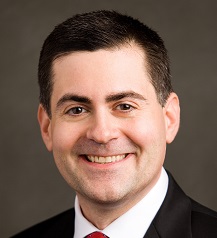By Bob Allen
Southern Baptists’ top public policy official says he sees God working in unexpected ways in the lives of people he encounters while representing the nation’s second-largest faith group after Roman Catholics in the nation’s capital.
 Russell Moore, head of the SBC Ethics and Religious Liberty Commission, said in a panel discussion at Southeastern Baptist Theological Seminary Feb. 6 that part of his work in Washington involves “Nicodemus moments,” reminiscent of the Bible story about a Jewish ruler who comes seeking spiritual answers from Jesus in John Chapter 3.
Russell Moore, head of the SBC Ethics and Religious Liberty Commission, said in a panel discussion at Southeastern Baptist Theological Seminary Feb. 6 that part of his work in Washington involves “Nicodemus moments,” reminiscent of the Bible story about a Jewish ruler who comes seeking spiritual answers from Jesus in John Chapter 3.
“God is working magnificently right now on Capitol Hill, … but God is working in places — it seems to me — that are the most distant from Christianity than those that are solidly within Christianity,” Moore said at the 2015 GO Conference Feb. 6-7 at the Southern Baptist Convention seminary in Wake Forest, N.C.
“The places that you would expect that are kind of close to a Christian worldview are, in my experience, the hardest to the gospel right now,” Moore said. “But those places that you would look at and you would say, this is an organization or this is a television network or a newspaper or whatever that is hostile completely to everything that the gospel is about, there are all sorts of people there who are saying ‘I’ve got some questions here’ and the Lord is working in their lives that way.”
Moore said one of the most impressive conversations he had was with “a guy in government who came to Christ” because of his experience with a “church in another denomination.”
“The church had been there for 200 years,” Moore said. “George Washington was a member of that church. The denomination had become really liberal, really dismissive of the Word of God, and they had taken the property away from this church, because they were standing on the Word of God.”
“And this guy just went as a gawker, just to see this church in their last service before they handed the keys over to the denomination,” he continued. “And he said he got in there and these people are singing, they’re crying because they’ve been in that church all their lives, but they were triumphant.
“And he said the pastor stood up and said, ‘These are buildings. They’ve meant a lot to us, but they’re just buildings. The gospel is more important than these buildings.’ And the guy said he was sitting there thinking, ‘This is crazy. This is primo real estate.’ And that really started him asking ‘Why are they responding this way?’ And as he heard the gospel being preached he came to Christ. Now he’s leading Bible studies, leading people to Christ on Capitol Hill.”
Moore advised students not to listen to people who say politics are unimportant, because believers are to be focused on spiritual concerns instead of those that are temporal and worldly.
“You are still in the world even though you are not of the world,” he said. “Think about what the Scripture teaches in Romans 13. It says that Caesar has a responsibility to God to act justly. In a democratic republic, that means everybody makes those decisions. So you’re actually held accountable to God for the decisions that you are making in the running of the country for the common good.”
“It’s the equivalent of Pontius Pilate saying ‘I don’t want to deal with this,’” he said. “Well you have to deal with this, because it’s your job, but you have to do it in a way that is glorifying to God. So not voting in this system of government is a dereliction of your duty to love neighbor.”
When it comes to knowing how to vote, Moore counseled: “There are going to be some issues that are clearly revealed in Scripture that we have to understand are clear that are there and we’re all together on. There are going to be other issues that are not as clear in Scripture, where we can come to different understandings” and disagree about the best way to move toward a desired goal.
Moore said it’s important in voting to remember the Bible verse that says “do not put your trust in princes.”
“There’s no political party that’s going to usher in the Kingdom of God, so we don’t put any hope in a political party,” he said. “We don’t see them, as our allies on this issue or that issue, as people who are allies on everything. We don’t do that.”
“Nor do we see the people who may disagree with us on some things as our enemies on everything or opponents on everything,” he said. “So we kind of hold it with a little bit of distance, and recognize that we’re first people of the Kingdom of God.”
